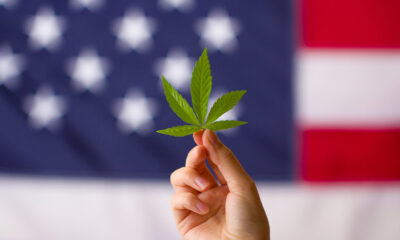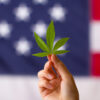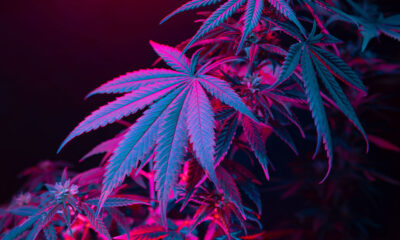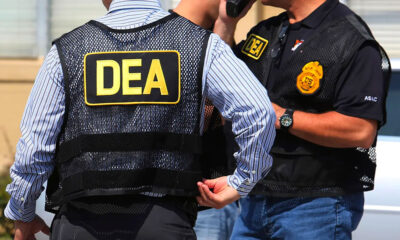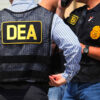
Politics
Does Trump Even Have a Cannabis Policy? Signs Point to No
Initial cannabis industry responses to Trump’s election and subsequent promotion of avowed “drug warriors” ranged from cautious optimism to abject horror. But after repeated mixed signals and false starts on a potential federal cannabis crackdown, a new picture is emerging: the Trump administration may not have any official policy plans when it comes to cannabis.
Apart from using the power of his office to promote his own businesses and enrich his children — and delaying Twitter’s free-fall into cash-bleeding irrelevancy — President Donald Trump has had a hard time actually getting anything done. Whether this relative policy gridlock is the result of an inexperienced cabinet, a lack of organization or an internal mutiny is difficult to say, but the record speaks for itself: not much is getting done.
Even basic functions of office like presenting cogent (or at least consistent) messaging has proven difficult for the Trump team. On top of the almost daily scandals plaguing its communications department, the White House can’t even be sure where its own (presumably GPS-tracked, hopefully very hard to lose track of) ships at sea are located.
In this context, the notion that Trump’s people are all over the map on something as simple as drug policy shouldn’t be too surprising. And yet, Homeland Security Secretary John Kelly’s remarkable 48-hour turnaround on the threat posed to America by marijuana — the same drug that’s legal for adults over 21 in states where 65 million Americans live, the same drug 90 percent of all Americans believe should be legal medicine — shows the Trump Train is off the rails on weed, too.
On Sunday, Kelly went on NBC’s Meet the Press to declare the obvious: With billions of dollars’ worth of legal marijuana sold in American every year, cartels have moved onto other things.
Kelly said cannabis “isn’t a factor” in the drug war.
“The solution is not arresting a lot of [cannabis] users,” he said.
But two days later, during a speech given to law-enforcement officers at George Washington University, it was as if that talk had never happened: he called cannabis “a potentially dangerous gateway drug that frequently leads to the use of harder drugs,” and vowed to use all the resources at his disposal to enforce federal marijuana law at the nation’s border and ports of entry.
The best explanation for Kelly’s rapid about-face was found elsewhere in Washington on Tuesday. That same day, Attorney General Jeff Sessions contradicted his fellow cabinet member — and years of data and anecdotal evidence — with his insistence that marijuana, and not meth or opiates, is the stock-in-trade of international drug cartels.
From the Washington Times:
“We [did] have quite a bit of marijuana being imported by the cartels from Mexico. This is definitely a cartel-sponsored event,” Mr. Sessions said at a crime committee meeting.
He said there’s a lot of violence around “marijuana distribution networks,” including in the D.C. area.
“So it is a financial money-maker for them,” he said. “I returned from the border last week and they told me that quite a number of the people they arrest are hauling marijuana across the border.”
“So it … remains a significant international criminal organization, the marijuana network,” he said.
In truth, marijuana seizures at the border have dropped by more than 50 percent since states in the U.S. began legalizing marijuana. Mexican-based marijuana farmers openly admit to abandoning cannabis for opium poppies because the value in illicit weed has gone.
The easiest conclusion to draw from this soup of contradictory statements and outright untruths is that the Trump Administration doesn’t have a marijuana policy, leaving each cabinet-level post to do and say as it pleases.
Since Trump only recently appointed a drug czar to lead the Office of National Drug Control Policy, this is probably true in the literal sense — as in there is no formal policy memo. But even if it there was, there’s no guarantee it would be adhered to by the DOJ or any other agency with freewheeling anti-pot zealots like AG Jeff Sessions calling shots.
U.S. Rep. Earl Blumenauer (D-Oregon), a member of Congress’s Cannabis Caucus, underlined that hazy official line during a conference call with reporters on Wednesday.
“I think we can say one thing has been consistent: We’ve received inconsistent signals from this administration on a variety of issues,” he said. “It seems to be a characteristic that as soon as something is said, sometimes the same spokesperson is contradicting themselves in the same presentation.”
As of yet, not a one of the many ominous words about a marijuana crackdown has resulted in any tangible action, leading some marijuana businesses to relax and carry on with business as usual.
And for the time being, that may be the best protocol for navigating the chaos swirling around Team Trump — just ignore it. So far, it’s all just been noise.
TELL US, do you think a new drug czar will mean more federal action on cannabis?





